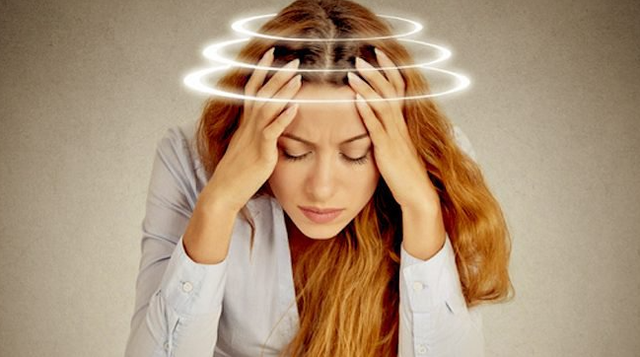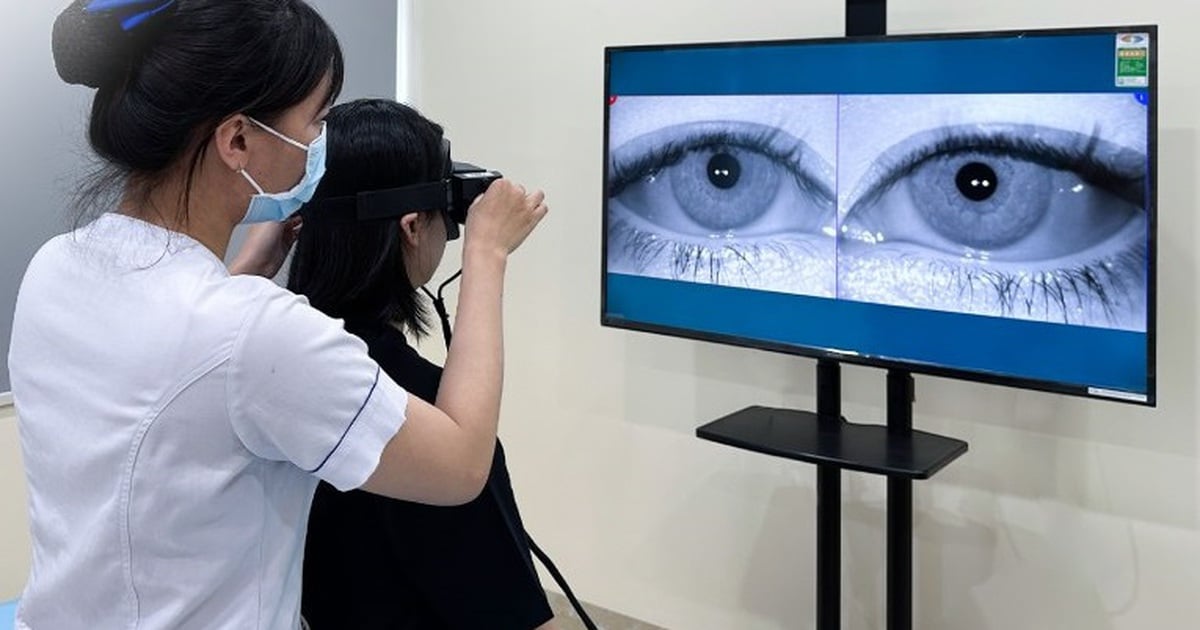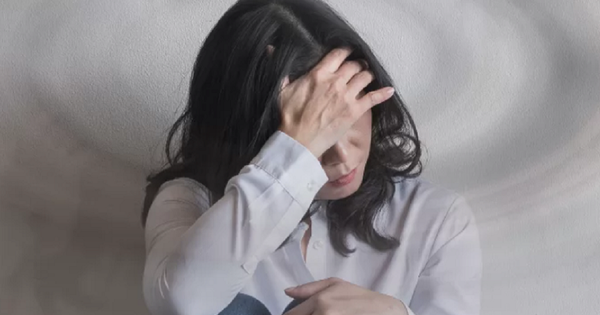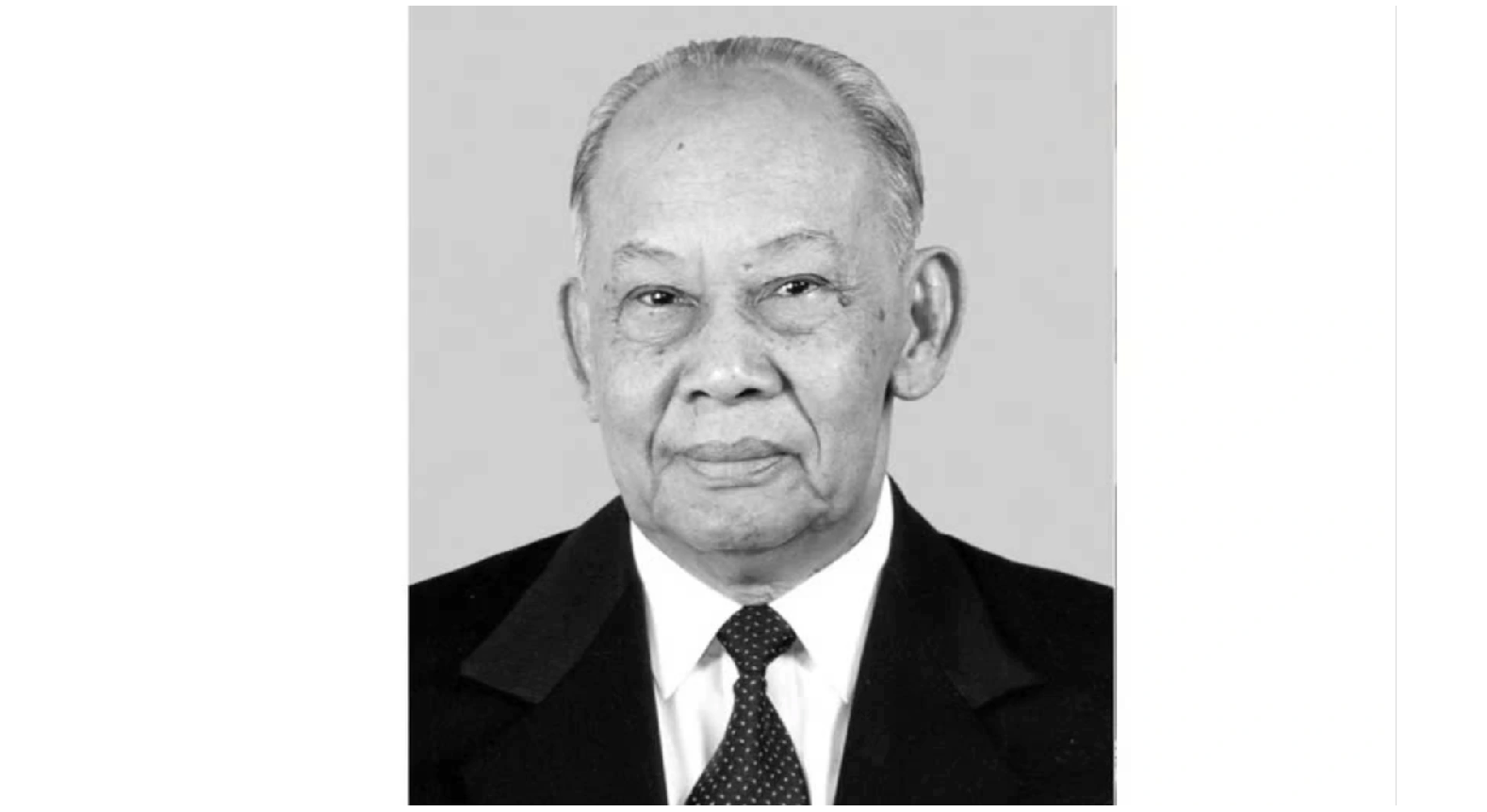Vestibular disorders are common diseases when the weather changes. At this time, resistance is often low, combined with common chronic diseases such as blood pressure, cardiovascular disease... causing many people to often feel dizzy, lightheaded, dizzy, tinnitus, nausea... These are the evidence and symptoms of vestibular disorders.

Vestibular disorders are a common disease when the weather changes. Illustration photo
What is vestibular disorder?
The vestibule is a part of the nervous system located behind the cochlea on both sides. The vestibule plays a role in balancing the body, maintaining balance in postures, in activities, coordinating moving parts such as eyes, hands, feet, body...
Vestibular disorder is a condition in which the transmission and reception of information by the vestibular system is disrupted or blocked due to damage to the eighth cranial nerve or the artery that nourishes the brain or other damage in the inner ear and brain. This causes the vestibular system to lose its ability to maintain balance, the body to stagger, dizziness, vertigo, dizziness, tinnitus, nausea...
These symptoms recur many times, appear suddenly, making the patient very uncomfortable, greatly affecting the patient's life and ability to work.
Distinguishing between peripheral vestibular disorders and central vestibular disorders
According to medical experts, there are 2 types of vestibular disorders, including:
Peripheral vestibular disorder
This condition is caused by damage to the inner ear, vestibular nerve or vascular occlusion in the back of the neck. The patient will often feel dizzy when changing positions but still be quite alert when moving.
Central vestibular disorder
The reason for this syndrome is due to damage to the vestibular nucleus, the connection line between the vestibular nucleus of the cerebellum and the brain stem. Patients often feel a drooping face, have difficulty walking or feel dizzy when changing positions...
How dangerous is vestibular disorder?
Vestibular disorders may only appear for a few days and then disappear, but they can also last for a long time and recur many times. This condition not only seriously affects the patient's life and work, but can also cause many dangerous complications.
During the illness, if the patient tries to walk, he or she may fall, causing skin injuries or even broken arms, legs, traumatic brain injury (due to hitting the head on a hard object/hard ground),...
The most dangerous complication of vestibular disorders is stroke due to poor blood flow to the brain. Therefore, when the disease is detected, patients should actively treat vestibular disorders according to the doctor's instructions.
4 typical signs of vestibular disorders

Illustration
Vestibular disorders cause dizziness
Patients with vestibular disorders feel like they are swaying, spinning, have difficulty standing up or sitting down, and some people cannot even stand up. The reason for this is that the peripheral nerves are damaged or the brain's nervous system is compressed. In most cases, after resting, the above signs will stop.
Vestibular disorders cause loss of balance
The patient will feel dizzy and lose balance, have difficulty walking, and always feel lightheaded. Many times, to move, they have to hold on to other people or objects. The cause of this condition is due to blockage of the cerebellum and the entire vestibular system.
Vestibular disorders cause insomnia
Insomnia is related to psychological or cognitive problems. People with vestibular disorders have difficulty concentrating, excessive anxiety, and reduced attention: the patient's mind is often in a state of lightheadedness, confusion, loss of concentration, and fear of falling.
Vestibular disorders cause dizziness and decreased vision.
Vestibular disorders can also cause dizziness, decreased vision, sensitivity to light, tinnitus, rapid heartbeat, anxiety, palpitations, nausea, vomiting, high blood pressure or low blood pressure. In some cases, patients also experience tremors, numbness in limbs, headaches, etc.
Can vestibular disorders be cured?
Vestibular disorders can be cured, avoiding recurrence and complications if the patient receives proper and active treatment. Patients should seek medical advice and should not self-medicate because many drugs can cause adverse side effects.
In addition to taking medication, patients should do regular, gentle exercises for the cervical spine to help blood circulation and reduce cerebral ischemia.
In case the elderly have dizziness, accompanied by sudden headache, blurred vision, high fever, loss of vision, hearing loss, etc., they should go to the hospital for examination. If they have chronic diseases such as low blood pressure, high blood pressure, high blood fat, etc., they need to be treated according to the doctor's instructions.
Current treatments for vestibular disorders
Use of drugs for vestibular treatment
People with vestibular disorders will have different types of drugs and dosages, depending on the examination and clinical testing process to determine the cause and extent of the disease. Therefore, patients need to follow the doctor's instructions, use the correct medication and the correct dose as prescribed by the doctor.

Illustration
Practice vestibular rehabilitation exercises
Vestibular rehabilitation exercises will help increase coordination of body parts, helping the brain to recognize signals and process signals from the vestibule more smoothly and rhythmically.
Exercise regularly
Regular exercise is needed to help improve health, increase blood circulation, and stabilize cerebral blood circulation. At the same time, it reduces pressure and stress for the patient.
Build a reasonable diet
Eat a full range of nutrients to provide enough energy for the body. Eat lots of vegetables, tubers, and fruits; limit fried foods, greasy foods...
Perform surgery if necessary
If the above treatments for vestibular disorders are not effective and do not improve the condition, the doctor may recommend surgery.
Source




![[Photo] General Secretary To Lam receives Japanese Ambassador to Vietnam Ito Naoki](https://vstatic.vietnam.vn/vietnam/resource/IMAGE/2025/4/3/3a5d233bc09d4928ac9bfed97674be98)

![[Photo] Moment of love: Myanmar people are moved to thank Vietnamese soldiers](https://vstatic.vietnam.vn/vietnam/resource/IMAGE/2025/4/3/9b2e07196eb14aa5aacb1bc9e067ae6f)
![[Photo] Special relics at the Vietnam Military History Museum associated with the heroic April 30th](https://vstatic.vietnam.vn/vietnam/resource/IMAGE/2025/4/3/a49d65b17b804e398de42bc2caba8368)























































































Comment (0)